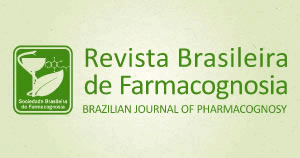Abstract
Marine environment is one of the most important sources regarding natural products research. Besides, marine microorganisms have been denominated as a talented natural source for discovery of new leads. Although the association of macroalgae and fungi has been described regarding ecological issues, there is a lack of studies about marine seaweed endophytic fungi. In this context, the goal of this study was to evaluate cytotoxic, antifungal and antibacterial activities of endophytic fungi isolated from the Brazilian marine seaweed Bostrychia tenella (J.V. Lamouroux) J. Agardh (Ceramiales, Rhodophyta). Forty-five endophytic microorganism strains were isolated from B. tenella. Crude extracts and organic fractions of ten selected strains were obtained after growth in rice medium. Samples were evaluated for cytotoxicity, antifungal and antibacterial assays. Penicillium strains showed positive results in a diversity of assays, and other five strains were active in at least one test. In addition, cytochalasin D was isolated from Xylaria sp. This alga is composed of a microbiological potential, since its endophytic strains exhibited remarkable biological properties. Moreover, cytochalasin D isolation has confirmed chemical potential of marine endophytic strains. This is the first study in which cultured fungi isolates from the Brazilian macroalga B. tenella were evaluated concerning biological properties. Results corroborated that this species could be a pharmaceutical source from marine environment. Furthermore, Acremonium implicatum is being firstly described as marine endophyte and Xylaria sp., Trichoderma atroviride and Nigrospora oryzae as marine seaweed endophytes. Thus, this work reports the first study relating detailed isolation, cultivation and biological evaluation (cytotoxic, antifungal and antibacterial) of endophytes Penicillium decaturense and P. waksmanii from the Brazilian marine red alga B. tenella. We are also reporting the isolation of cytochalasin D, a known antitumor and antibiotic compound, from Xylaria sp. strain. Despite widespread prevalence in terrestrial and marine habitats, this present work describes the first occurrence of cytochalasin D as a metabolite from marine seaweed endophyte.
Keywords
Brazilian seaweed; Cytochalasin D; Penicillium; Xylaria




